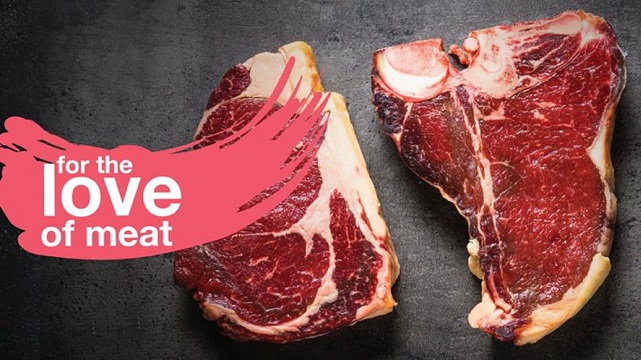Israel’s Redefine Meat Makes 3D Steaks
It just raised $29 million to join Israel’ growing alternative meat tech industry.

With over 90% acceptance rate amongst meat eaters, Redefine Meat’s Alt-Meat products will be launched globally in 2021
Redefine Meat is one of a number of Israeli startups moving forward in providing the technology necessary to give the world viable meat alternatives. It does so by way of 3D printing technology. The company just raised $29 million in a Series A round of funding.
Established in 2018, Redefine Meat applies its proprietary 3D printing technology, meat digital modeling, and advanced food formulations to produce animal-free meat with the “appearance, texture and flavor of whole muscle meat.”
The company boasts that its sustainable plant-based meat products have a taste and mouthfeel that is indistinguishable from traditional animal meat. It uses plant-based ingredients and technology as opposed to animals, allowing for a “dramatically more efficient, sustainable, and moral way to produce meat without compromising on the experience.” Redefine Meat states that its alt-meat is 95% more sustainable, significantly healthier and costs less than beef.
“We are thrilled to have concluded this round of funding with such a unique and diverse group of highly experienced, professional investors who share our vision,” says Eshchar Ben-Shitrit, CEO and Co-founder of Redefine Meat. “This funding, which was concluded faster and better than we could have imagined a year ago, is a major step towards becoming the world’s biggest alternative meat company by 2030.”
So Redefine Meat joins many Israeli firms developing meat alternatives. They provide vegan versions of chicken eggs, beef and dairy products. But this is not just something for vegans. The worldwide production of animal and dairy products has been condemned for years as contributing to global warming and increased pollution. And there are also issues of animal cruelty to be considered.
–
[embedded content]
Countless documentaries and news reports have shown how the waste left behind by all those chickens and cows cause pollution. The animals also release greenhouse gasses. And most of the dairy eggs is not even consumed in its natural form. They are used for anything from yogurts to junk food additives. And the countless chickens and cows spend their lives in factories with some never seeing the light of day.
Quality alternatives which taste just as good will not only be healthier for people to eat, but also have a much smaller environmental impact in their production over the real thing. They will also require much less energy to produce.
Here are just a few other examples of Israeli firms using high tech to create such alternative types of food:
The Mediterranean Food Lab develops natural plant-based flavor bases for the alternative meat sector recently won the EIT Food Accelerator Network Program with an award of €100,000 ($119,000). It was founded by Yair Yosefi, Omer Ben Gal, and B.Z. (Ben) Goldberg, who joined forces to harness their individual research and development expertise in plant-based flavoring agents to establish the startup.
Israeli startup Zero Egg produces an egg alternative made from plants for foodservice and food manufacturers. The company asserts that its product tastes, looks, and functions like a real egg.
Israeli meat alternative company Aleph Farms has a new initiative to eventually produce its products on Mars. The program is called Aleph Zero and is intended to produce non-GMO cells anywhere and in any environment.
In this way the production of its meat alternative will not be affected by the environment nor in any way have an impact on Earth’s environment.
Another company called Meat-Tech recently successfully bio-printed a thin, uniform, slaughter-free meat tissue produced from stem cells. Meat-Tech has reached a substantial product milestone by printing a layer of meat combining both muscle and fat cells that successfully fused. The company’s next milestone is printing a 100-gram (quarter pound) steak, without harming animals. The company aims to develop commercial technologies to manufacture alternative foods with no need for animal butchery, based on rapid growth cycles.




